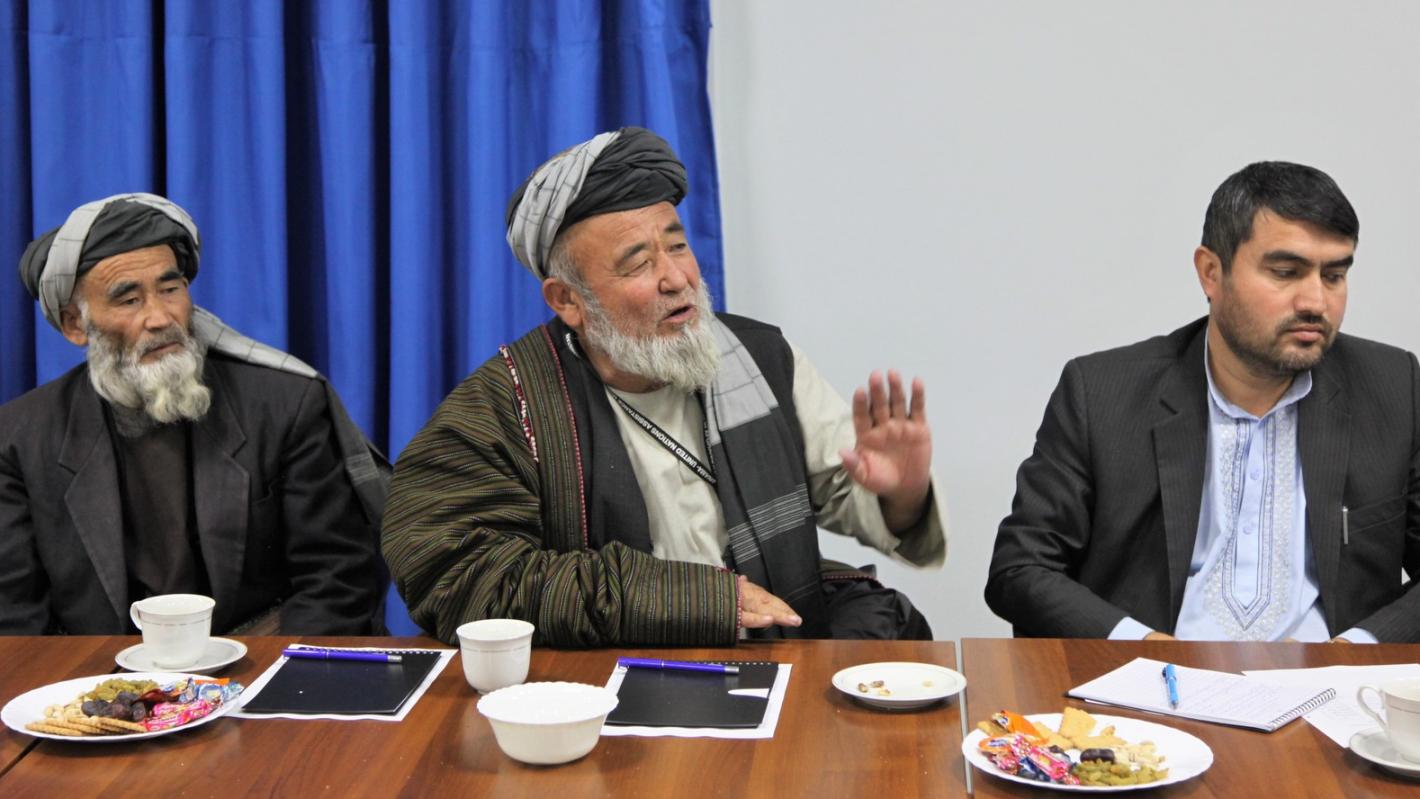MAZAR-E-SHARIF - A UN-backed peace initiative has helped ease a longstanding dispute in Samangan, demonstrating the power of local communities to determine their fate through dialogue, even against the backdrop of the broader conflict playing out across the country.
Some 2,000 inhabitants of the Mohammad Qodug area of Samangan province’s Hazrati Sutlan district – a main passage for transporting coal and a place where shepherds bring their herds to pasture – were facing a violent rivalry between two communities over a death resulting from a trespassing incident. That clash had led to violence that cost lives in both communities and displaced some 250 people.
“This conflict made us abandon our homes and livelihoods,” said Mawluddin, a displaced villager. “Our children were deprived of education and health services, and we had been urging both sides to stop fighting and let us return to our homes.”
In early 2018, Samangan’s former governor, Abdul Karim Khaddam, requested UNAMA’s support to resolve the longstanding conflict. To facilitate a peaceful resolution to the dispute, UN officials met over several months with leaders from the two communities until they agreed to have conflict-resolution talks.
The two communities ultimately agreed to a meeting in November 2018. The meeting, which was attended by 18 representatives from both communities, including provincial authorities, resulted in a jointly written peace pact that included ending the fighting and allowing undisturbed movement and common use of the pastureland.
At the meeting, both sides expressed their intention to co-exist peacefully and committed to start the process of fully settling the remaining dispute over land and resolving all existing problems.
“The fatal rivalry inflicted enormous pain and suffering upon our people and caused casualties and economic damage,” said Rayis Juma the lead negotiator for one of the communities. “We had to put an end to it.”
A representative from the other community, Ziauddin, said he hoped that the agreement would lead to lasting peace so that the two communities could go back to their normal lives. “Peace and unity are key to our prosperity,” he said.
UN officials present at the meeting praised the local actors and called the deal an example of how local peacebuilding can bring positive results.
In other areas of the country, UNAMA has been working on similar community-level initiatives with local government, Provincial Peace Committees, Departments of Women’s Affairs, interested communities, armed groups, religious scholars and media partners to support peaceful resolutions to local conflicts.
In accordance with its mandate as a political mission, UNAMA supports the Afghan people and government to achieve peace and stability. UNAMA backs conflict prevention and resolution, promoting inclusion and social cohesion, as well as strengthening regional cooperation. The Mission supports effective governance, promoting national ownership and accountable institutions that are built on respect for human rights.
UNAMA provides 'good offices' and other key services, including diplomatic steps that draw on the organization’s independence, impartiality and integrity to prevent disputes from arising, escalating or spreading. The Mission coordinates international support for Afghan development and humanitarian priorities.






